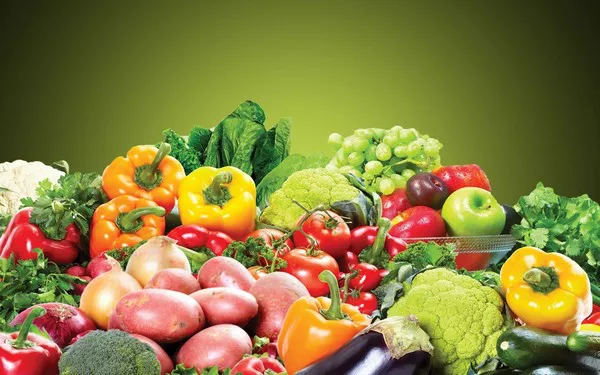Zinc is a vital micronutrient that plays a crucial role in various bodily functions, including immune system support, wound healing, and cell division. Incorporating zinc-rich foods into your diet is essential for maintaining overall health. In this article, we’ll explore the importance of zinc, its benefits, and an extensive list of foods that are high in zinc. Whether you’re a vegetarian or a meat-eater, you’ll find a variety of options to help you meet your daily zinc needs.
The Importance of Zinc in Your Diet
1. Immune System Function
Zinc is known for its immune-boosting properties. It helps the immune system fight off infections and supports the production of white blood cells, which play a crucial role in immune response.
2. Wound Healing
Zinc is essential for wound healing and tissue repair. It aids in collagen synthesis, which is necessary for maintaining healthy skin and facilitating the healing process.
Benefits of Consuming Zinc
1. Cognitive Function
Zinc contributes to cognitive function and memory. Adequate zinc intake has been associated with improved cognitive performance, particularly in tasks related to learning and memory.
2. Antioxidant Defense
Zinc is an important component of various antioxidant enzymes that protect cells from oxidative stress and damage caused by free radicals.
See Also: What Vitamins Do I Need to Supplement with Diarrhea: A Simple Guide
Zinc-Rich Foods: Animal Sources
1. Red Meat
Red meats, such as beef and lamb, are excellent sources of zinc. Opt for lean cuts to reduce saturated fat intake while enjoying the benefits of zinc.
2. Poultry
Poultry, including chicken and turkey, is a good source of zinc. Skinless poultry is a healthier option that provides the nutrient without added fats.
3. Seafood
Certain seafood options are rich in zinc, such as oysters, crab, and lobster. Oysters, in particular, are considered one of the best sources of zinc.
Zinc-Rich Foods: Plant-Based Sources
1. Legumes
Legumes, such as beans, lentils, and chickpeas, are excellent plant-based sources of zinc. Incorporate them into salads, soups, and stews for a nutrient boost.
2. Nuts and Seeds
Nuts like cashews, almonds, and pumpkin seeds are packed with zinc. They make for convenient snacks or can be added to yogurts and cereals.
3. Whole Grains
Whole grains like quinoa, oats, and brown rice contain moderate amounts of zinc. Choosing whole grains over refined grains provides additional nutritional benefits.
Dairy and Dairy Alternatives
1. Dairy Products
Dairy products, such as cheese and yogurt, contribute to your zinc intake. Opt for low-fat or Greek yogurt to maximize protein and zinc content.
2. Fortified Alternatives
Certain dairy alternatives, like fortified plant-based milk (e.g., almond, soy, or oat milk), provide added zinc. Check labels for fortified options.
Zinc Absorption and Factors Affecting It
1. Phytates
Phytates, present in legumes and whole grains, can inhibit zinc absorption. Soaking, sprouting, or fermenting these foods can help reduce phytate content.
2. Animal Proteins
Zinc from animal sources is more easily absorbed by the body compared to plant-based sources. Combining zinc-rich plant foods with vitamin C-rich foods can enhance absorption.
Recommended Daily Intake of Zinc
1. Adult Men
The recommended dietary allowance (RDA) of zinc for adult men is around 11 milligrams per day.
2. Adult Women
Adult women have an RDA of approximately 8 milligrams of zinc per day. Pregnant and breastfeeding women require slightly higher amounts.
Signs of Zinc Deficiency
1. Impaired Immune Function
Zinc deficiency can weaken the immune system, making individuals more susceptible to infections.
2. Hair and Skin Issues
Zinc deficiency may lead to hair loss, skin problems, and delayed wound healing.
Incorporating Zinc-Rich Foods into Your Diet
1. Balanced Meals
Create balanced meals that include a variety of zinc-rich foods to meet your daily zinc needs.
2. Snacking Smart
Choose zinc-rich snacks like nuts, seeds, and yogurt to boost your nutrient intake throughout the day.
Conclusion
Incorporating zinc-rich foods into your diet is essential for maintaining good health and supporting various bodily functions. From animal sources like red meat and seafood to plant-based options like legumes and nuts, there are numerous ways to ensure you’re meeting your daily zinc requirements. Whether you follow a vegetarian, vegan, or omnivorous diet, prioritizing foods high in zinc will contribute to your overall well-being and help you enjoy the many benefits this essential nutrient has to offer. Remember to maintain a balanced diet and consider factors that influence zinc absorption to maximize its benefits.


